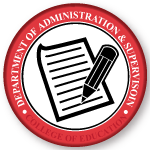Date of Award
Spring 2021
Degree Type
Dissertation
Degree Name
Doctor of Education (EdD)
Department
Educational Leadership
First Advisor
Tamara J. Williams
Abstract
Hope, the ability to establish goals, plan for the future, persist in the face of challenges, and motivate oneself throughout the goal cycle, is a social endeavor requiring the collective support and resources of families, school staff, and peers. Schools that teach and reinforce life skills (i.e., hope and social-emotional competence) are able to positively impact student outcomes by teaching the skills necessary to build social support systems, improve the safety of the school by facilitating social-emotional expression, foster collaboration and collective success, and give students meaningful voice and choice. In doing so, schools increase the resources available to students in their goal pursuits. Hope and social-emotional competence are important because they impact every aspect of a child's development which, in turn, affects the child's future goals and their ability to motivate themselves, access and utilize resources, problem-solve to overcome barriers, inhibit and facilitate behaviors, and achieve their goals. Students' backgrounds, the environments in our schools, student risk factors, and the school's ability to adapt to meet students' needs have the potential to impact students' life skills and short- and long-term outcomes. This qualitative study examined the CHS and DESSA-mini scores of 153 students in third through sixth grades to determine whether a
relationship exists between social-emotional competence and students' levels of hope and whether students receiving special education services have significantly different levels of hope and social-emotional functioning than students in general education. The findings of this study support a relationship between hope and social-emotional functioning and highlight significant differences in hope and social-emotional competence between the two subgroups. The results of this study were used to inform a self-monitoring tool that schools can use to determine whether gaps in life skill development exist for their own populations, address any gaps that exist, and produce equitable outcomes for all students.
Recommended Citation
Hettenbaugh, Whitley R., "A Comparison of Student Hope and Social-Emotional Competence Between General Education and Special Education Settings" (2021). Educational Leadership Theses, Dissertations, and Student Creative Activity. 13.
https://digitalcommons.unomaha.edu/edleadstudent/13


Comments
The author holds the copyright to this work. Any reuse or permission must be obtained from the author directly